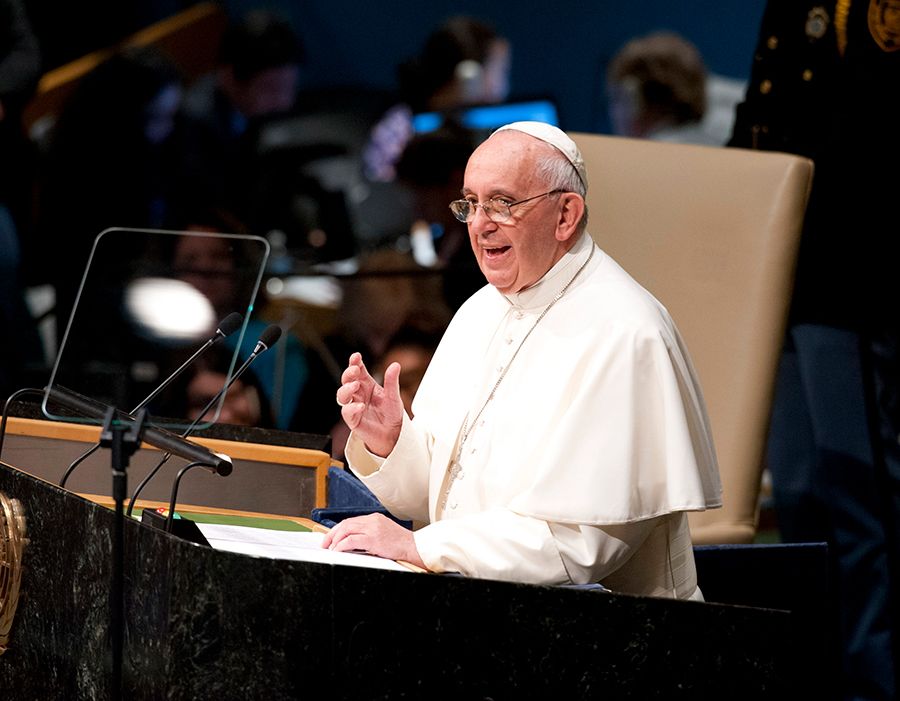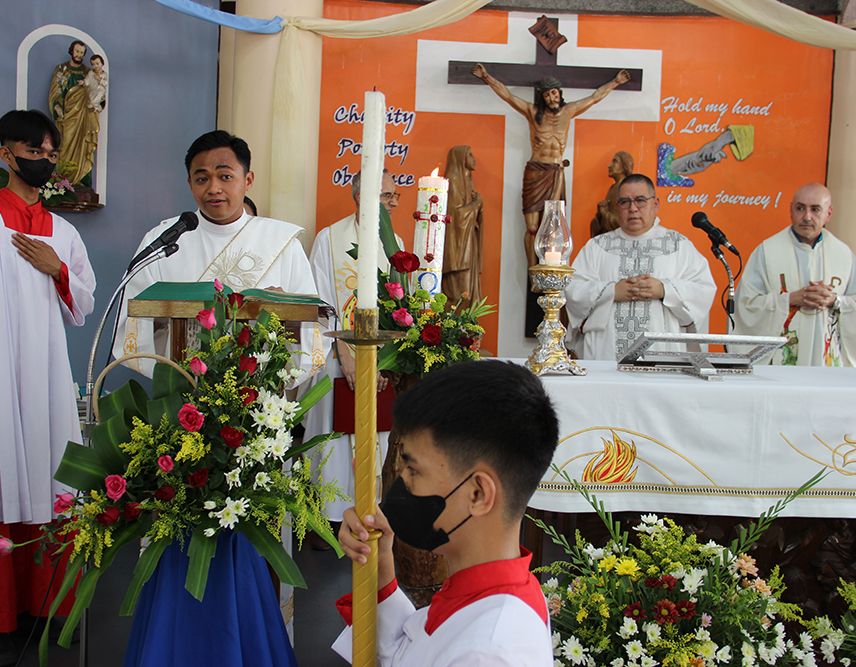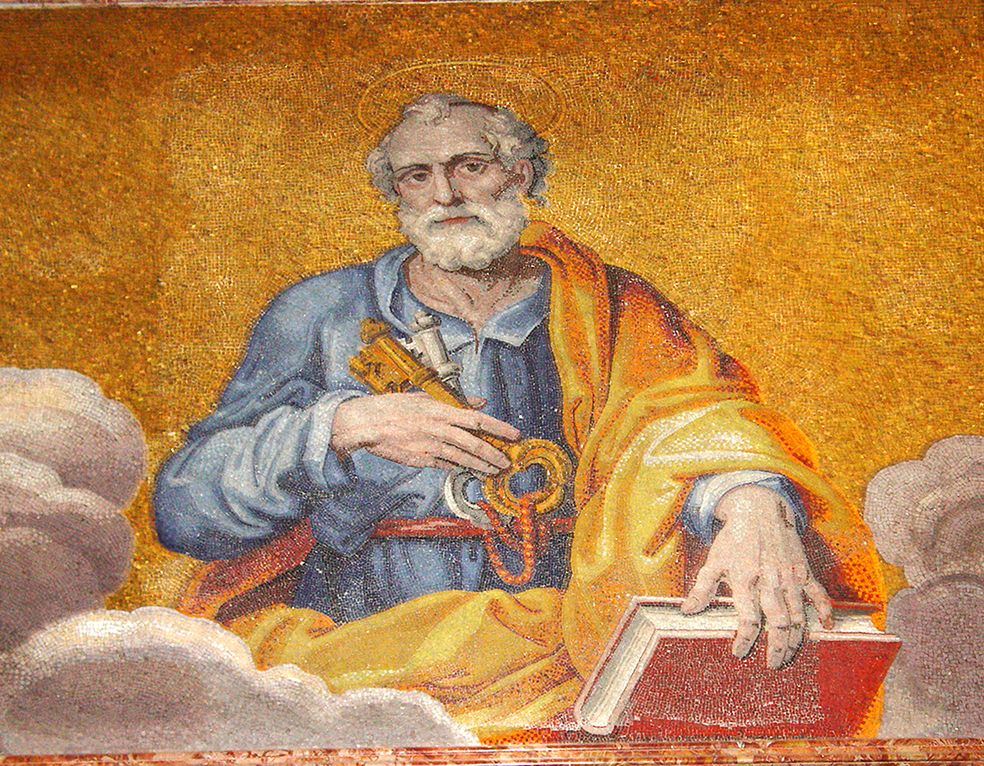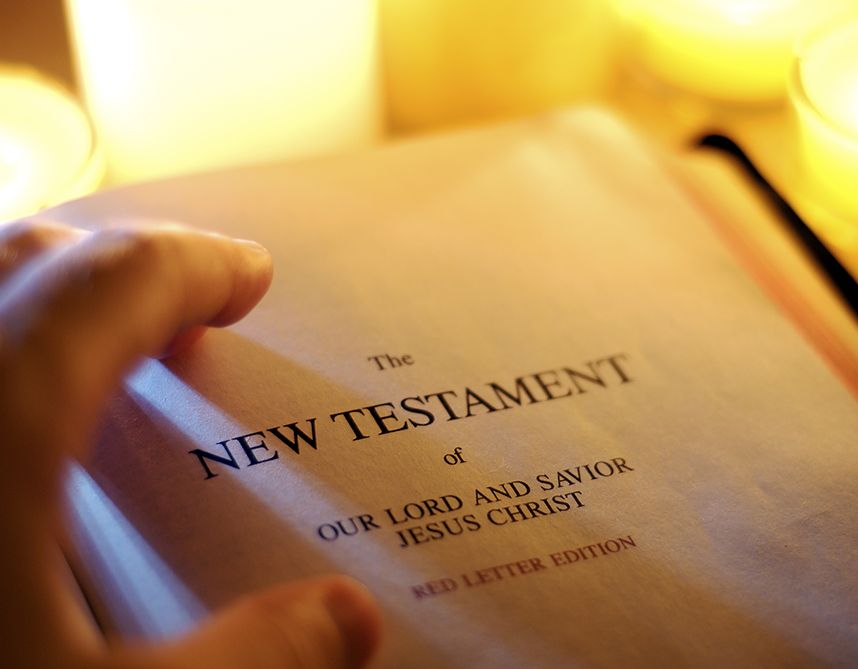Reading the Bible is for spiritual nourishment. This is why it is like eating the Word. The traditional reading of the Scriptures or Bible is done in the light of faith and for prayer. The first and most important usage of the Scriptures or Bible in the community of the Church is the proclamation of the word of God in the Liturgy. This is “public use.” The Liturgy of the Word in the Mass is also called “the table of the Word” before we pass to the “table of the sacrament”.
The “private use” is the reading of the Scriptures by individuals and groups outside the liturgy. The private reading happens in countless forms and fashions. A traditional method of reading the Scriptures that we inherited from the monastic tradition is the Lectio Divina which is developed in 5 steps.
First comes Reading (Lectio): a slow, repeated reading of the passage in question; then follows Meditation (Meditatio): a reflection on the reading of the passage with this main question: How does this word of God affect my life? The third step is Prayer (Oratio): a personal, spontaneous conversation with God about the result of the meditation. Contemplation (Contemplatio): an affectionate dwelling at length on a specific detail from the Word of God. The conclusion is Sharing (Collatio): if the exercise is done in a group we may be inclined to share some of our reflections with our companions.
The Senses In Scripture
The first sense to be noticed is the literal: what the text says by itself. This is the first sense to be always understood and to pay attention to before considering the other senses. Allegoric or symbolic sense happens when the literal sense becomes the first step in order to point to a symbolic meaning which usually refers to Christ. Allegory is a symbol that is developed in all its details.
The moral sense follows: it directs our behavior according to God’s guidelines or commandments. The spiritual (and eschatological) sense points to the soul’s struggle for holiness in order to reach the final destination, Heaven.
There is also the full sense (sensus plenus): it is what we read in a given text from the perspective of the Risen Christ. It illustrates the principle that only with the knowledge of the Risen Christ we can understand fully the Scriptures. As we wrote before, an example is given by Christ’s statement: “I am the good shepherd” if we put it in connection with Psalm 23: “The Lord is my shepherd”. It is evident that Jesus’ statement implies that He is God like Yahweh. That is the full sense of what He says about Himself.
10 GUIDELINES FOR READING OF THE BIBLE
1. Don’t think that you are the first to read the Bible. Many people in all generations have read, meditated, and put it into practice. The best interpreters of the Scriptures are the Saints.
2. The Bible is the book of the Christian Community. Our reading can never be solitary but must be in the tradition of the Church and under the light of the Holy Spirit.
3. The Bible is “Somebody/Christ”. The most important reading is done in the Proclamation of the Word during the liturgy.
4. The center of the Bible is Jesus Christ. Therefore, everything must be read in the light of Christ. He is the fulfillment of the Scriptures. Christ is the key to the interpretation of the Bible
5. The Bible is made of facts/happenings and words. God’s revelation is manifested both by facts and words. The words throw light on the facts. The facts fulfill the words.
6. A good and practical way of reading the whole Bible is to start with the Gospels and the Acts of the Apostles, then the Letters, alternating with books of the Old Testament. Some books must be read little by little like Leviticus or the Psalms. The Prophets are the soul of the Old Testament. They deserve special attention and dedication.
7. The Bible must be conquered like the city of Jericho: surrounding it. Thus, try to see the parallel passages and the references. It takes time and effort, but it is of great profit. St. Augustine used to say: “The New Testament is hidden in the Old. The Old is revealed in the New.”
8. The Bible must be read and meditated with the same spirit by which it was written. The Holy Spirit is the main author and interpreter. We must always pray before starting our reading of the scriptures and, in the end, we must give thanks to God.
9. Normally, let us not use the Bible in order to criticize or condemn other people.
10. Every passage of the Bible is set in a historical context and literary form. If we ignore these characteristics, we may manipulate the Bible to make it say what it doesn’t want to say. It is like taking God’s name in vain.


























